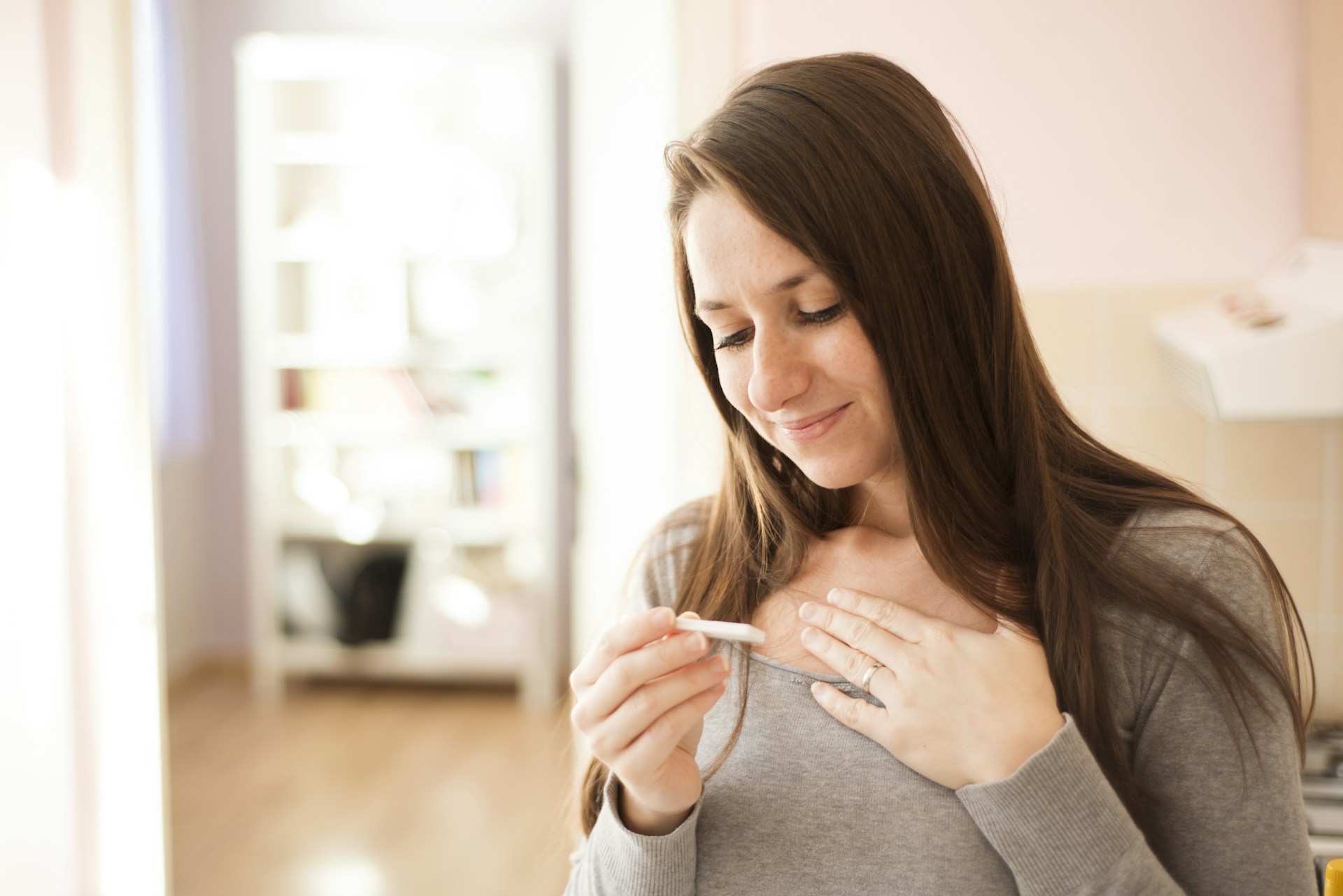The two-week wait is not only a stressful period, but the uncertainty and loss of control can make things even more challenging. Here's what to avoid during the two-week wait and what to do instead.

The two-week wait is not only a stressful period, but the uncertainty and loss of control can make things even more challenging. Here's what to avoid during the two-week wait and what to do instead.
So, you’re trying to conceive and have done everything possible to prepare your body for fertility. But now you’ve hit the dreaded two-week period.
That moment between ovulation and a missed period can feel like torture, especially if you’ve been disappointed before.
In this article, we'll discuss what not to do during the two-week wait and what to try instead.
What is the two-week wait?
The two-week wait is the window between ovulation and your period. It’s an exciting yet stressful time where those trying to conceive eagerly anticipate the results of their efforts.
Anyone who has undergone fertility treatments will inform you that the two-week wait is a rollercoaster of ups and downs, hope and fear. One moment you’re optimistic about the prospect of becoming pregnant, and the next, you find yourself in a rabbit hole, desperately researching any symptom that points to a positive sign of pregnancy.
But the two-week wait — while a moment that feels like pure agony — is an opportunity to turn things around.
Instead of resorting to stress and unhealthy coping mechanisms, use this window to avoid the things that bring harm and prioritize things that serve your overall well-being.
7 things to avoid during the two-week wait (and what to do instead)
1. Don’t sit around waiting
The two-week wait is not an easy period to deal with emotionally. At first, you may feel excited knowing that you’re on the right path to achieving your goal of becoming pregnant.
But, if no pregnancy symptoms present themselves after your ovulation window, you may quickly feel discouraged. Therefore, it’s best to keep busy while you’re waiting to test.
Use this time to distract yourself with positive coping mechanisms such as spending time with friends, pampering yourself with a self-care evening, watching a funny movie, adventuring in nature, or anything to prevent you from fixating on the passing time.
2. Don’t ignore your partner
When you’re trying to conceive, and it’s not working how you expected, several issues can arise, including problems that may affect your relationship. It can create ongoing emotions and issues you may keep pushing under the rug for another day.
Unfortunately, this avoidance will cause increased stress that's not beneficial for your body or mind. Therefore, use this time to connect with your partner and share your feelings. Are you happy, angry, sad, or worried?
Tell them how you’re feeling and what you need from them moving forward. It will also allow them to do the same while strengthening your relationship through a difficult time.
While you’re at it, plan a date and do something fun to help you both get your minds off the anticipation of waiting.
3. Don’t dwell in stress
Like the first time, you may find it challenging to think of anything else but your dreams of becoming pregnant.
And, while your mind can be a wonderful tool in creating the life you want, too much stress and concern can sabotage your mental and physical health.
In fact, it provides the reverse effect. Too much stress can affect your hormone levels and can impact ovulation. Therefore, use the two-week wait as your opportunity to remove any stress from your life.
Reflect on areas you could improve, including setting boundaries within your professional and personal life to reduce stress. When you prioritize your self-care and emotional wellbeing, you’ll feel better, stronger, and more capable of coping with stress.
If you’ve ever wanted to create a mindful routine or include meditation in your life, take up yoga or journal, this is the opportunity to do so. Feed your mind and body with self-love, self-acceptance, and self-compassion.
4. Avoid negative self-talk
When we’re in the throes of anticipation and stress, our self-criticism volume may increase.
Statements like “You’re doing something wrong”, “You don’t deserve to have what you want”, and “You’ve tried so much before, what makes this time any different?” may play on repeat.
Especially if you’re prone to anxiety or experiencing a mental health concern like depression, the two-week wait may amplify those symptoms. It’s critical during this time to evaluate how you’re feeling.
Check-in with yourself regularly, prioritize your needs and seek support. Whether you receive support from a mental health professional, your family, friends, or loved ones, surround yourself with an uplifting and empowering community. It will make a difference as you wait.
5. Don’t test too early
It is so tempting to test early. Especially after all the hormone tests, ovulation estimations, and cycle-tracking, you’re eager to know the results. However, your body needs time to build up enough of the pregnancy hormone, known as human chorionic gonadotropin (hCG), to be detected by a urine test.
If you take your test too early, you may become discouraged, and the negative result may intensify your stress levels. As hard as it is to wait, your patience will provide a more accurate and reliable result.
6. Avoid symptom spotting
The internet has made symptom spotting too easy. If you’re prone to health anxiety, you may find yourself browsing Reddit forums, WebMD, and every health-related blog to analyze your potential pregnancy symptoms, otherwise known as symptom spotting.
But before you get too eager, find a healthier distraction. Even though you’re overwhelmed by the possibility of becoming pregnant, many potential early pregnancy symptoms are also common PMS symptoms.
Sore breasts, cramping, bloating, cravings, and mood swings may feel like pregnancy signs, but they could also indicate your period is starting soon.
Although it’s a difficult habit to let go of, symptom spotting can cause increased stress and misery. Use this time to connect with yourself, loved ones, and anything that uplifts you to help distract yourself as the time passes.
7. Don’t drink coffee or alcohol
While not a surprise, it’s worth mentioning: both alcohol and caffeine can delay your ovulation and may disrupt your ability to conceive.
Try to avoid alcohol entirely and limit your coffee intake to at least below 200 milligrams a day during the two-week period for optimal results.
>>MORE: Alcohol and Fertility: What's the Link?
If it’s too challenging to limit to a couple of coffees a day, a few alternatives include chai latte, herbal tea, matcha tea, hot cacao, or a turmeric latte.
How do you manage the two-week wait?
Among this list of what not to do during the two-week wait and healthier alternatives, the number one tip is to be kind to yourself.
The two-week wait is not only a stressful period, but the uncertainty and loss of control can make things even more challenging. It’s therefore important to be kind and gentle to yourself.
Take it one day at a time and fill this waiting game with relaxation, self-care, and positive coping mechanisms. The more relaxed you feel, the easier it will be to manage the two-week wait.
FAQ
What should you expect during the two-week wait?
The two-week wait can be a stressful, anxiety-ridden time. Check in with and take care of yourself, and don't try to test too early.
What should you not do during the two-week wait?
While it's called the two-week wait, don't sit around and wait. Instead, focus on taking care of yourself. Yet don't hurry to test yourself, either.
Should you take a pregnancy test during the two-week wait?
No. Taking a pregnancy test too early may exacerbate stress. Waiting will give you a more accurate, clear result.
About the author

Sources
- Cleveland clinic. (2022). Human Chorionic Gonadotropin: Hormone, Purpose & Levels.
- Rooney K & Domar A. 2018). The relationship between stress and infertility.
About the Oova Blog:
Our content is developed with a commitment to high editorial standards and reliability. We prioritize referencing reputable sources and sharing where our insights come from. The Oova Blog is intended for informational purposes only and is never a substitute for professional medical advice. Always consult a healthcare provider before making any health decisions.



